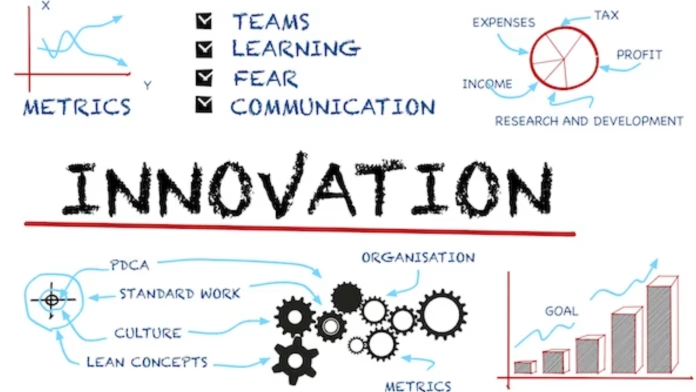Innovation is key to success in any industry, and the food industry is no exception. With the rapidly changing tastes and preferences of consumers, food businesses need to constantly innovate to stay ahead of the curve. Fostering a culture of innovation can help food businesses to develop new products, improve efficiency, and stay competitive in the market.
In food businesses, fostering a culture of innovation means creating an environment that encourages the development of new and exciting products, the adoption of new technologies, and the continuous improvement of processes and operations. This can help businesses stay ahead of the curve in an industry that is constantly evolving.
However, it is not just about encouraging new product development, but also about creating an environment that values and rewards creativity, collaboration, and risk-taking. It involves creating a safe space for employees to experiment and make mistakes, while also providing the resources and support needed to turn innovative ideas into reality.
Fostering such culture is extremely important, especially in today’s highly competitive and rapidly changing market. With consumers becoming more health-conscious and demanding, and with technology driving new trends and innovations, food businesses must continually adapt and evolve to stay relevant.
It is essential for staying competitive in a rapidly changing market, driving growth and success, and meeting the evolving needs and preferences of consumers.It also helps to grow in the modern world as consumers are more aware and are open to trying first-of-a-kind products. Creating a culture of Innovation within your company is driven by multiple factors.
Firstly, the rise of new technologies and the increasing use of data analytics in the food industry are making it easier for businesses to identify trends and opportunities for innovation. By harnessing these technologies and analyzing consumer behaviour, businesses can identify gaps in the market and develop new products and services that meet the changing needs and preferences of their customers.
Secondly, the growth of the food startup ecosystem is also driving innovation in the industry. As more and more startups enter the market, established businesses are being forced to adapt and innovate to stay competitive. The culture of innovation that is often found in startups is also spreading to established businesses, as they seek to stay relevant and capture a share of the growing market.
Thirdly, consumers are becoming more demanding when it comes to the food they eat, and they are increasingly looking for healthier, more sustainable, and ethically produced food options. This is driving innovation in areas such as plant-based and alternative protein products, organic and non-GMO foods, and sustainable packaging.
Not to be forgotten, the COVID-19 pandemic has also accelerated the need for innovation in the food industry. With the shift towards online ordering and delivery, businesses have had to quickly adapt to new ways of operating and find innovative solutions to meet the changing needs of their customers. Alongside, the pandemic has enabled people to think towards more nutrition and improved immunity-boosting ingredients to stay healthy & fit.
Strategies for fostering a culture of innovation include encouraging experimentation, embracing failure, creating a collaborative environment, celebrating successes, investing in training and development, and encouraging diversity and inclusion. Here are some strategies for fostering a culture of innovation in food businesses:
1. Encourage creativity: Encourage employees to think outside the box and come up with new ideas. This can be done through brainstorming sessions, innovation workshops, or simply by giving employees the freedom to experiment.
2. Create a safe space for experimentation: Encourage employees to experiment with new ideas without fear of failure. Create a safe space for experimentation by allowing employees to test new ideas on a small scale before implementing them on a larger scale.
3. Develop a culture of continuous learning: Encourage employees to continuously learn and develop new skills. This can be done through training programs, workshops, and other learning opportunities.
4. Foster collaboration: Encourage collaboration and teamwork between employees from different departments. This can help to bring fresh perspectives and new ideas to the table.
5. Provide resources and support: Provide employees with the resources and support they need to innovate. This can include funding for research and development, access to new technology, and support from management.
6. Recognize and reward innovation: Recognize and reward employees for their innovative ideas and contributions. This can be done through bonuses, promotions, or other forms of recognition.
7. Embrace new technology: Embrace new technologies such as automation, artificial intelligence, and data analytics to drive innovation and improve efficiency.
By fostering a culture of innovation, food businesses can develop products quickly and efficiently that are more relevant to the changing trends at a faster pace and better efficiency when combined with good technology and facilities.





